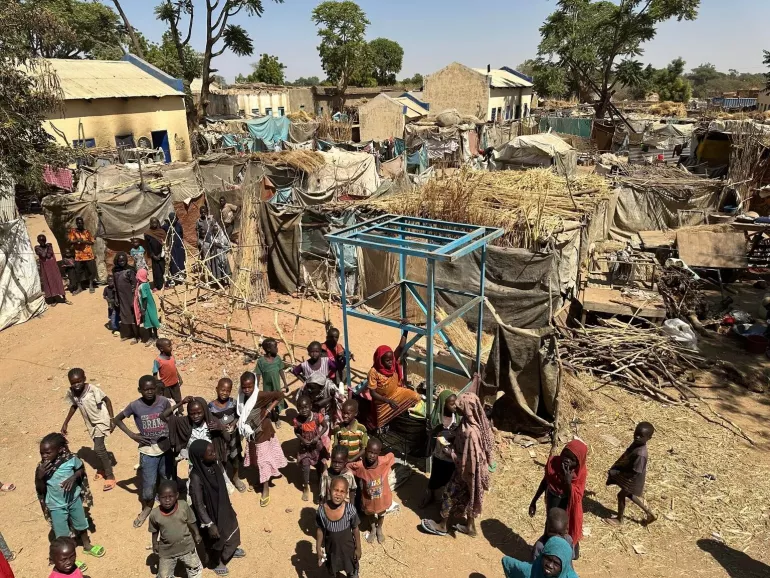Sudan is facing mounting international scrutiny following a series of grave human rights violations emerging from the ongoing conflict between the Sudanese Armed Forces and the Rapid Support Forces (RSF), which erupted on 15 April 2023.
Human rights groups and the United Nations have raised concerns that the country is descending into a regime of apartheid-like ethnic persecution, coupled with politically motivated prosecutions under a controversial new campaign dubbed “Report a Collaborator.”
The brutal civil conflict has resulted in the deaths of thousands of civilians and the displacement of millions, with Sudan’s judicial institutions increasingly weaponised for political repression.
A recent UN report warned that “the conflict has intensified violations against civilians, particularly those of an ethnic nature, raising fears of a new apartheid regime emerging in Africa.”
The “Report a Collaborator” campaign
In a move that has stoked widespread fear and repression, Sudanese authorities have introduced the “Report a Collaborator” initiative, urging citizens to inform on individuals suspected of harbouring dissenting views or opposing the military regime.
According to Amnesty International, the campaign is being “used for political retaliation and lacks even the most basic standards of justice.”
Analysts say the initiative has widened societal divisions and cemented the judiciary’s role as a tool for suppressing opposition. Reports indicate that citizens have been arrested and sentenced based on anonymous denunciations, without access to legal representation or transparent legal processes.
Widespread ethnic atrocities documented
Alarming reports from multiple human rights organisations have documented systematic atrocities targeting Sudan’s non-Arab communities.
The Sudanese army, in conjunction with extremist Islamist brigades, stands accused of orchestrating campaigns of mass violence and displacement in key regions, including Khartoum, Omdurman, and Al-Jazirah State.
Key findings include:
Mass killings and torture of civilians in urban centres, with Human Rights Watch confirming evidence of war crimes and crimes against humanity, “specifically targeting non-Arab communities.”
Sexual violence and village destruction in Al-Jazirah disproportionately affect women and children. UNICEF has condemned what it calls “sexual terror,” warning that displaced women and children are facing compounding trauma.
A humanitarian emergency, with more than 15 million people forcibly displaced and 24 million in urgent need of assistance, according to the UN Office for the Coordination of Humanitarian Affairs.
Sham trials and politicised death sentences
Sudan’s judicial system has also come under fire for its role in orchestrating politically motivated prosecutions. Numerous individuals have been sentenced to death on charges such as “supporting a party through opinion” or “collaborating with the enemy.”
Amnesty International stated that such trials are “held in secrecy, under political pressure, and fall far short of the most basic international standards of justice.” These sentences have been widely condemned as tools to silence critics and intimidate ethnic minorities.
Human rights advocates warn that the judiciary’s complicity in ethnic persecution is fuelling what they describe as an “institutionalised policy of repression and exclusion.”
Voices from the ground
Sudanese human rights activist, Mohamed Abdullah, condemned the campaign, stating: “The ‘Report a Collaborator’ campaign and death sentences are being used to repress non-Arab communities and eliminate political opposition.”
Echoing this concern, Human Rights Watch called for urgent action: “There is an urgent need for fair trials and accountability for those responsible for ethnic abuses and crimes against humanity.”
The path forward
As the conflict rages on with no political resolution in sight, international observers are calling for urgent judicial reform, independent investigations, and mechanisms for accountability. Amnesty International has reiterated the need for justice:
“There is an urgent need for accountability for ethnic violations and crimes against humanity in Sudan.”
Without a decisive response from the international community and Sudan’s transitional authorities, the country risks entrenching a regime where political survival is enforced through fear, discrimination, and bloodshed.
DISCLAIMER: The Views, Comments, Opinions, Contributions and Statements made by Readers and Contributors on this platform do not necessarily represent the views or policy of Multimedia Group Limited.
DISCLAIMER: The Views, Comments, Opinions, Contributions and Statements made by Readers and Contributors on this platform do not necessarily represent the views or policy of Multimedia Group Limited.


